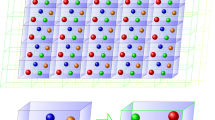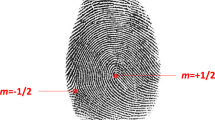Abstract:
We study the most suitable procedure to measure the effective temperature in off-equilibrium systems. We analyze the stationary current established between an off-equilibrium system and a thermometer and the necessary conditions for that current to vanish. We find that the thermometer must have a short characteristic time-scale compared to the typical decorrelation time of the glassy system to correctly measure the effective temperature. This general conclusion is confirmed analyzing an ensemble of harmonic oscillators with Monte Carlo dynamics as an illustrative example of a solvable model of a glass. We also find that the current defined allows to extend Fourier's law to the off-equilibrium regime by consistently defining effective transport coefficients. Our results for the oscillator model explain why thermal conductivities between thermalized and frozen degrees of freedom in structural glasses are extremely small.
Similar content being viewed by others
Author information
Authors and Affiliations
Additional information
Received 18 January 2001
Rights and permissions
About this article
Cite this article
Garriga, A., Ritort, F. Heat transfer and Fourier's law in off-equilibrium systems. Eur. Phys. J. B 21, 115–120 (2001). https://doi.org/10.1007/BF01315082
Issue Date:
DOI: https://doi.org/10.1007/BF01315082




